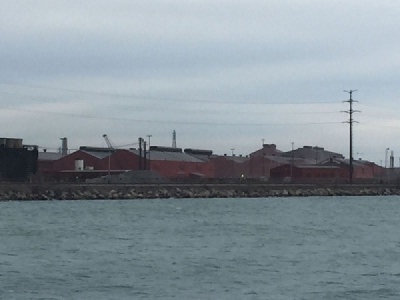
Posted on March 21, 2017
By Paul Czapkowicz
Individuals have until the end of the month to submit public comments to state and federal officials about the storing in a confined disposal facility contaminated sediment dredged from the Indiana Harbor and Ship Canal.
Specifically, the the Indiana Department of Environmental Management (IDEM) and the United States Environmental Protection Agency (EPA) is taking comments regarding work being done by the U.S. Army Corps of Engineers.
The plan is to dredge the sediments and place them in a confined disposal facility at 3500 Indianapolis Blvd.
The Army Corps has overseen the removal of more than 1 million cubic yards of sediment as part of an Indiana Harbor and Ship Canal dredging project that started in 2012.
The intent of the project is to prevent sediment from flowing into Lake Michigan and to make commercial navigation more safe and efficient.
Prior to 2012, the waterway had not been dredged since 1972.
The dredged sediment collected has been placed in the confined disposal facility, but the Army Corps now needs special permission from IDEM and the EPA to dispose of an estimated maximum volume of 60,000 cubic yards of sediment in the canal that contains a PCB concentration greater than 50 parts per million.
Disposal of material that meets that threshold is regulated by the Toxic Substances Control Act.
Representatives from IDEM, the EPA and the Army Corps held a public meeting recently at the main branch of the East Chicago Public Library to explain the permit sought and hear questions and comments from a group of about 25 people.
Those who spoke shared a common concern regarding potential health hazards associated with the highly contaminated sediments.
One asked why the PCBs would not be chemically treated and rendered inert as opposed to being removed and disposed of and suggested cost as the deciding factor.
IDEM Project Manager George Ritchotte said there is no specific requirement that PCBs be destroyed instead of disposed.
Source: nwi.com





